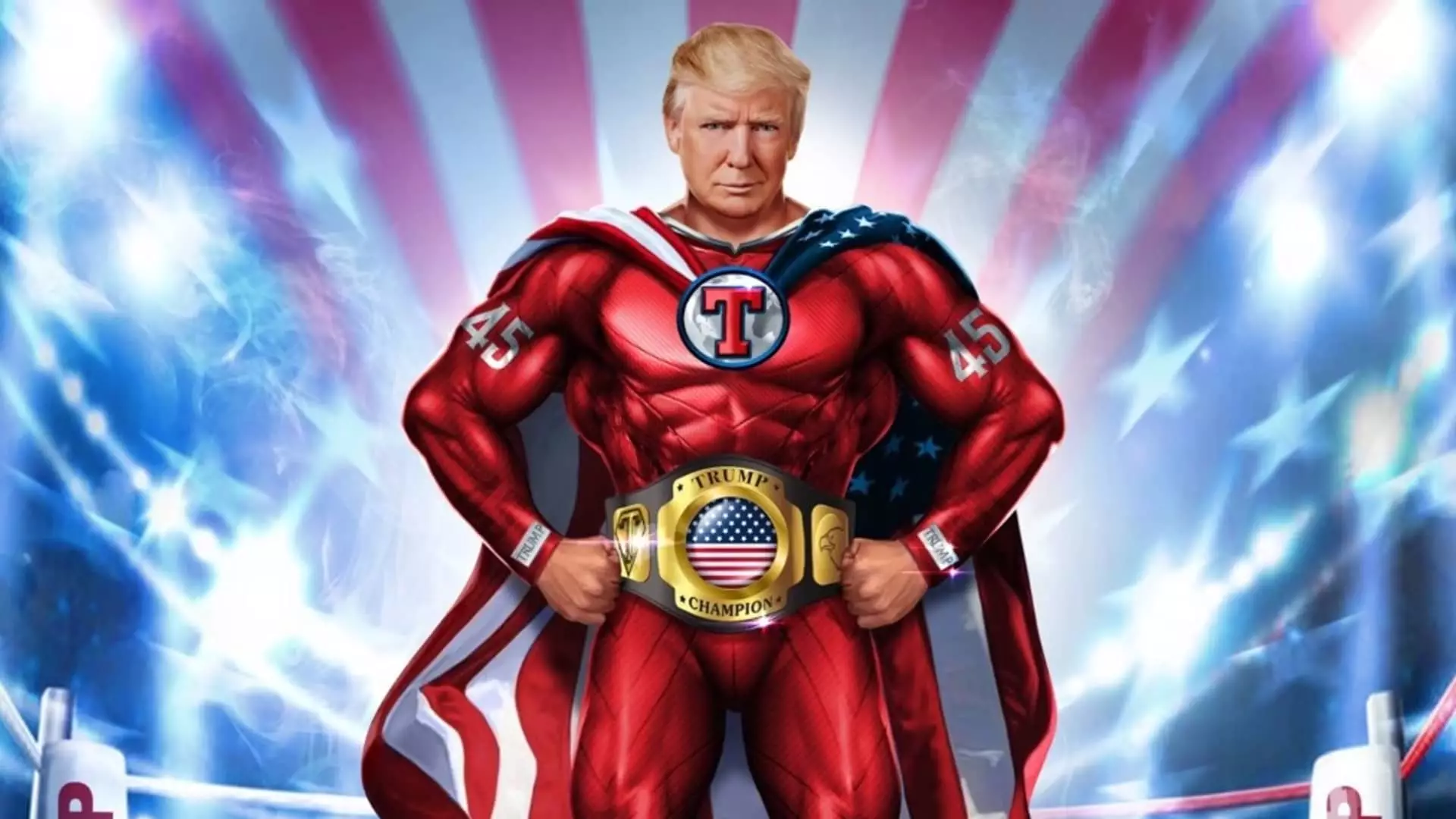With the political landscape heating up as the presidential election draws near, Donald Trump is venturing into yet another business. His latest foray, World Liberty Financial (WLF), aims to capitalize on the burgeoning cryptocurrency market by launching a new token known as WLFI. While this initiative could potentially reshape the future of finance—or so the former president claims—serious questions loom about its structure, viability, and the motivations behind it. This article delves into the opportunity and risks associated with WLF and its backers.
The Crypto Landscape: Opportunity or Mirage?
Trump’s announcement about WLFI caught the attention of investors eager to find the next big thing in cryptocurrency. In a promotional post on X (formerly Twitter), he presented the project as a transformative financial tool. However, potential investors should approach this opportunity with caution. The actual mechanisms and benefits of investing in WLFI remain vague. Information about WLF’s operations has largely been condensed into buzzwords like “crypto bank” without substantive details to justify such claims.
Since the launch of his social media venture, Trump’s platforms have faced ups and downs, and questions linger regarding their legitimacy. As many know, the regulatory landscape for cryptocurrencies is murky at best, leading to concerns about how effectively such ventures can function in a regulated manner.
Regulatory Concerns and Operational Ambiguities
There is a notable absence of a formal white paper or comprehensive business plan for WLF, prompting skepticism about its legitimacy. A roadmap shared by WLF personnel indicates ambitious goals such as raising $300 million at a staggering $1.5 billion valuation, but without transparent backing, the integrity of these projections is questionable.
Furthermore, the token will be offered under Regulation D, which allows companies to raise capital without registering with the Securities and Exchange Commission (SEC). While legally viable, this path excludes non-accredited investors who lack a net worth of over $1 million, hence limiting broader participation. Such exclusivity can also incite cynicism among those outside the investor pool.
An alarming aspect of this enterprise is the financial incentives laid out for WLF’s founders. For instance, there is an indication that 20% of the WLFI tokens are earmarked for the founding team, potentially including the Trump family. Moreover, a statement from WLF’s website suggests that founders could receive undisclosed fees for services related to the project. This raises red flags about potential conflicts of interest and whether the founders’ financial gains will outweigh investor benefits.
This murky financial structure points to a concerning trend: personalized profit-seeking under the guise of public benefit. Given the historical business dealings associated with the Trump name, it’s crucial for prospective investors to proceed with caution and conduct thorough due diligence.
In an online discussion hosted just hours before the token launch, WLF co-founder Zachary Folkman attempted to clarify the intention behind WLFI. He emphasized that the token is a governance tool rather than a representation of equity in the company itself. This distinction could confuse would-be investors, especially those who might expect traditional returns on their investment.
As WLF seeks regulatory approval from Aave—a respected name in DeFi—the feedback from the community has been decidedly mixed. Some commenters harbor significant concerns about the project’s affiliation with individuals who have dubious backgrounds. A particular worry has been raised about whether Aave should engage with a project tied to questionable operators.
As we stand on the precipice of this new venture, it is essential to scrutinize its feasibility and the characters at its helm. Those who invest may find themselves holding more than just digital tokens; they may be entangled in a complex web of political agendas and personal profit motives. If WLF hopes to gain traction as an innovative player in the cryptocurrency arena, a commitment to transparency and ethical business practices is crucial.
In the final analysis, while World Liberty Financial presents itself as an opportunity, potential investors must weigh the risks and conduct thorough research to navigate this treacherous financial landscape effectively. Only time will tell if this new venture is a legitimate financial innovation or simply another chapter in a long saga of entrepreneurial gambits riddled with complexity and risk.

